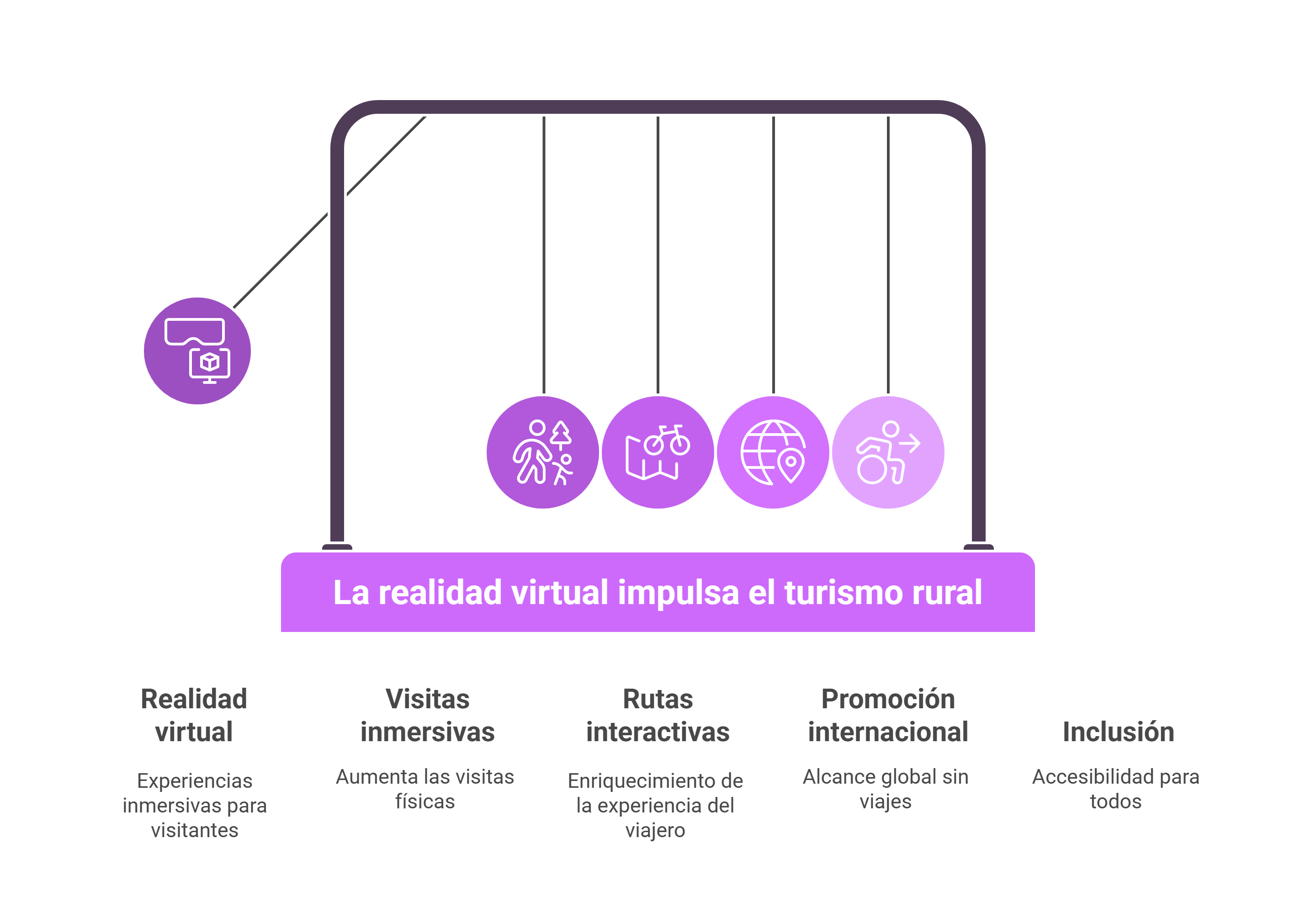Rural tourism is undergoing a digital transformation, and new technologies are opening up unprecedented opportunities for the villages of Castile and León. One of the most promising is virtual reality (VR), which allows visitors and travellers to enjoy unique immersive experiences, even before travelling to their destination.
Challenges for rural tourism
Small tourism businesses and municipalities in rural areas face several challenges:
Difficulty in attracting new audiences compared to urban and more established destinations.
Limited online visibility and the need to differentiate themselves in a global market.
Limited resources to implement advanced technological tools.
Benefits of Virtual Reality in experiential tourism
The application of VR in villages and rural environments offers notable competitive advantages:
Immersive preview visits: potential visitors can explore streets, monuments or museums in virtual format, increasing the likelihood that they will decide to visit them in person.
Interactive virtual tours: reconstruction of historical environments, nature trails or cultural tours that enrich the traveller's experience.
International promotion: a village can make itself known anywhere in the world without the need for prior travel.
Inclusion and accessibility: people with reduced mobility can enjoy rural heritage from their homes.

Cases of use
Recreation of traditional festivals in virtual environments.
Local museums with exhibitions that can be visited in VR.
Digitised nature trails that allow you to plan your route before physically walking it.
Gastronomic routes with 360º experiences in restaurants and wineries.
How can DIGIS3 help?
At DIGIS3, we support SMEs, entrepreneurs and rural municipalities in incorporating these technologies through:
Free digital maturity diagnostics.
Specialised advice on virtual reality and augmented reality.
Training in digital skills applied to rural tourism.
Proof of concept and search for European funding for innovative projects.
Virtual reality is not only a promotional tool, but also a driver of competitiveness and sustainability for the villages of Castile and León. With DIGIS3, we provide the necessary impetus for digital experiential tourism to become an opportunity for local development.